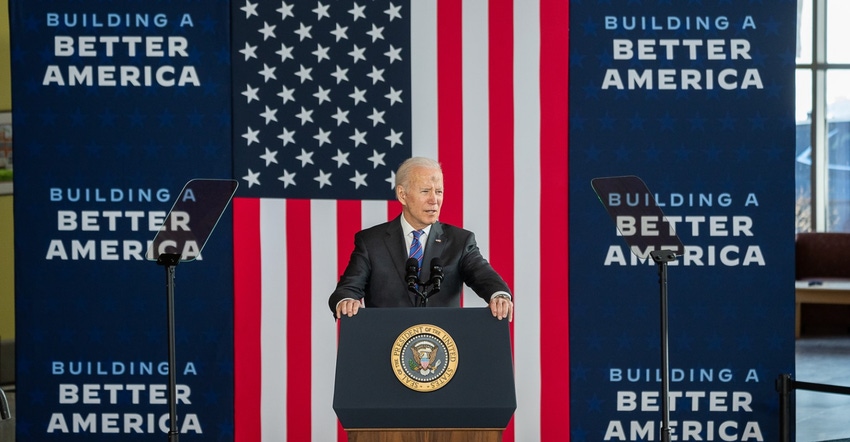
In an effort to fulfill promises made on the campaign trail, the Biden administration rolled out a new Rural Partners Network to help ensure the many resources allocated under the American Rescue Plan and Bipartisan Infrastructure Law find their way to those who need it in rural America.
While speaking from Clarksdale, Mississippi, USDA Secretary Tom Vilsack and White House Domestic Policy Advisor Susan Rice announced the new whole-of-government effort led by USDA to transform the way federal agencies partner with rural places to create economic opportunity in rural America. The USDA-led RPN is an all-of-government program that will help rural communities access government resources and funding to create jobs, build infrastructure and support long-term economic stability.
Vilsack and Rice were in Mississippi with Rep. Bennie Thompson, R-Miss., to meet with community leaders and stakeholders who will benefit from RPN in Clarksdale and Greenwood, Mississippi. The Biden administration hit the road last week to begin a multi-week Rural Infrastructure Tour to highlight new federal funding and investments in rural America.
Related: Biden administration kicks off rural infrastructure tour
“The Rural Partners Network will help communities get funding for investments that create long-lasting benefits for their communities, especially those that have been overlooked in the past. By providing one-on-one support to these communities, we can lay the foundation for people to build healthy, successful futures on their own terms,” Vilsack says.
The Rural Partners Network is a first-of-its-kind collaboration between federal agencies and local leaders and residents. This network is focused on improving social and economic well-being bolstered by existing local partnerships and assets. The network will launch in selected communities in Georgia, Kentucky, Mississippi, New Mexico as well as certain Tribes within Arizona. Community networks within these states will receive individualized support with the expertise to navigate federal programs, build relationships and identify additional resources to promote community-driven solutions.
The American Rescue Plan offers billions in funding for rural workers and businesses to rebuild and the infrastructure bill offers a once-in-a-generation investment in crucial rural needs including high speed internet and roads and bridges. However, often it is too hard to navigate federal programs for rural communities that may not have devoted staff or funds to hire a grant writer.
“We know communities are hurting now. This is a real opportunity to take advantage of some of the resources in front of rural America today,” says a senior USDA official in a preview call ahead of the announcement.
The RPN looks to establish partners on the ground with federal staff mandated to work with communities to figure out the needs of those communities and help them apply for federal funds. Each community network will be supported by a Rural Partners Network team to help address that community’s specific needs and concerns, building on local assets.
The USDA senior official adds the place-based approach helps “connect the dots” between community leaders, state partners and other federal partners on how to help fill the gaps and resources the federal government can provide.
Network staff will also be responsible for sharing lessons learned from selected communities with federal agencies in D.C. to ensure rural communities have a voice in policymaking. Policy development will occur through regular convenings of the Rural Prosperity Interagency Policy Council, co-led by USDA and the Domestic Policy Council. There are 16 federal agencies and regional commissions participating in the Council.
To deliver on the promise to make federal resources more readily available to underserved communities across rural America, the Biden administration will expand the Rural Partners Network to additional places later in fiscal year 2022. Those states, Tribes and territories include Nevada, North Carolina, Puerto Rico, West Virginia, Wisconsin and Native Alaskan communities.
The President�’s 2023 budget proposal does include the expansion of the network to all 50 states. The USDA senior official explains the RPN is designed at a federal level so it is durable and can live forward through “smarter coordination and strategy development through departments.” He hopes bipartisan interest in the program’s ability to produce outcomes that matter to all rural communities can create momentum for Congress to expand funding for the network.
About the Author(s)
You May Also Like






